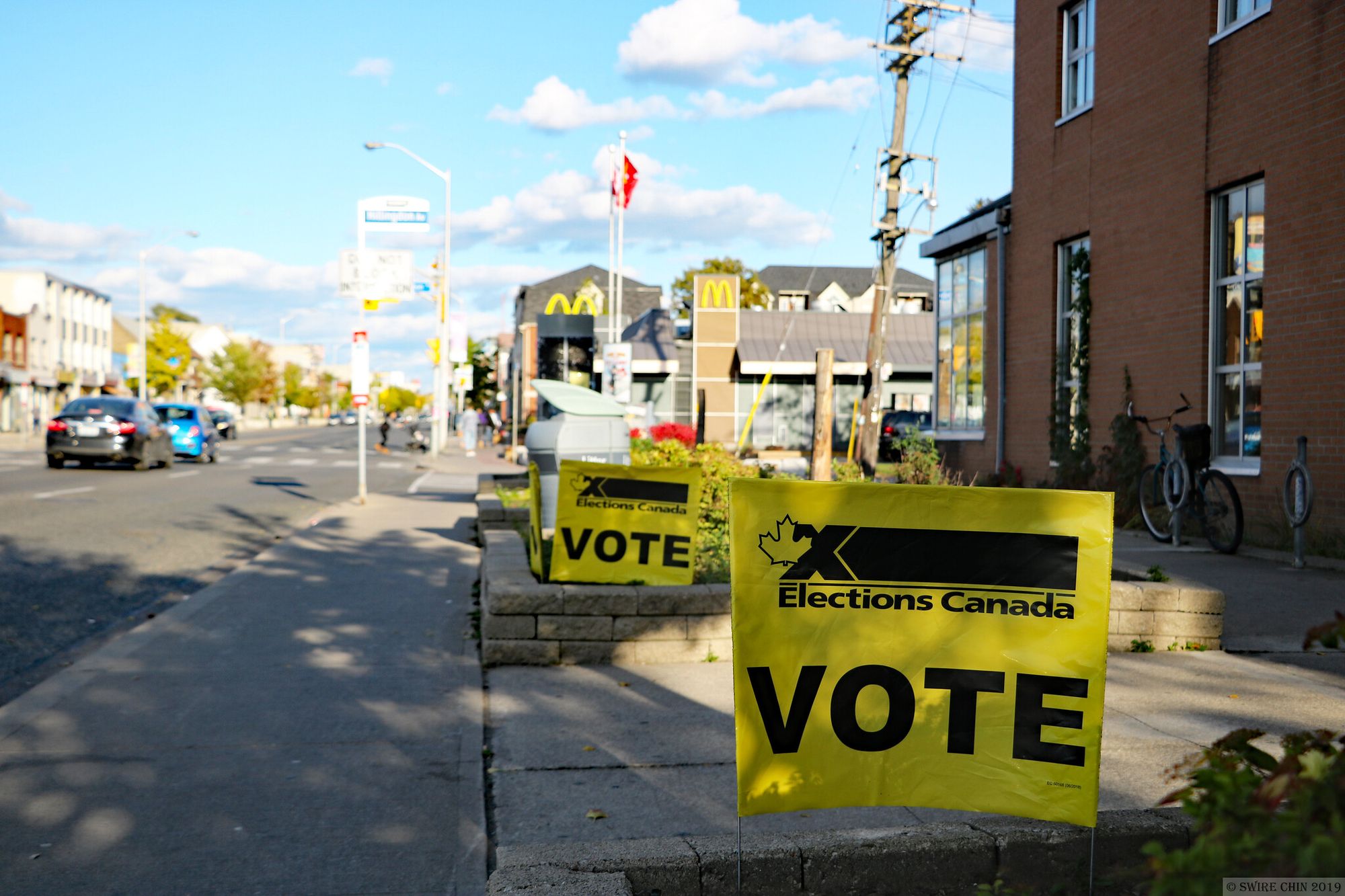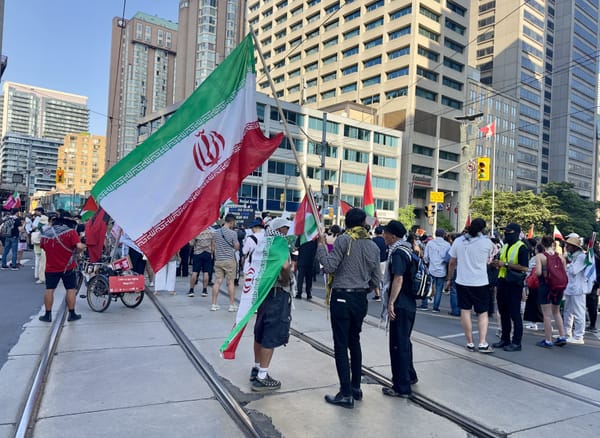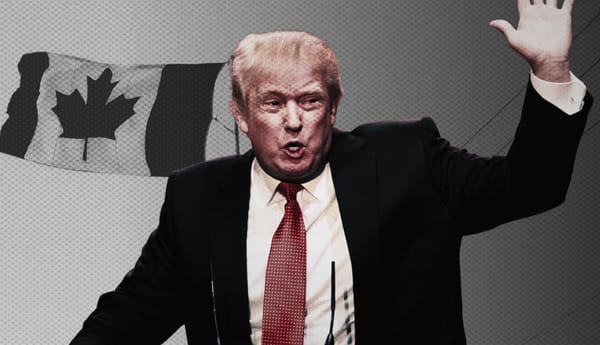Voter turnout for the past election in Ontario was an all-time low. The campaigns were uninspired, the front runner refused to talk to journalists and everyone was living in a COVID-19 induced haze. It’s no wonder people weren’t moved to go to the polls.
In the days that followed, many pundits argued that the low voter turnout was proof Canada needs to change its electoral laws. While some argued for a change to the system itself, most of the public interventions focused on one thing in particular: making voting mandatory.
In the Toronto Star, veteran journalist Bob Hepburn wrote plainly: “The remedy for these challenges is simple: Make voting mandatory.” He argued that this would force political parties to target all voters, rather than focus only on their niche. It would also force a more diverse result, he claims, though he doesn’t offer evidence about who is and who isn’t voting to support this argument.
Writing for the National Observer, Max Fawcett argued that, “Mandatory voting can rescue Canadian democracy.” After stating that the “most obvious” fix for voter disenfranchisement in Ontario is for the Liberals and the NDP to merge (?), he argues mandatory voting would ensure that election results more accurately reflect the will of the people. He doesn’t state how, though. He just assumes, I guess, that mandatory voting would create an outcome similar to what the polls say. It’s a weak argument, considering the problem isn’t that more people aren’t voting, but rather that the electoral system creates fake results through the riding system with the first-past-the-post (FPTP) system.
FPTP is the biggest reason for voter disenfranchisement, and forcing everyone to vote isn’t going to get past the reality that in most ridings in Ontario, your vote will have no value unless you’re supporting the most popular candidate. It’s called vote efficiency, and it means that governments are routinely elected with false majorities. Ford himself only had the support of about 17 per cent of Ontarians eligible for voting in the past election, but now has maximum power to do what he’d like.
Fawcett cribs his arguments from Andrew Coyne, who focused his article on Australia, which has had mandatory voting for federal elections since 1924. Coyne lauds the fact that turnout “shot up” after the law was introduced, which should surprise no one: more people vote when they’re forced, by law, to vote.
But is that actually more democratic? Both Fawcett and Coyne neglect to mention that Australia isn’t plagued by the FPTP system. Nearly all Australian elections use ranked ballots, which was first introduced in some cases even prior to the introduction of mandatory voting. Ranked ballots give people second and third options. Under FPTP, mandatory voting will still continue to produce false majorities — the core issues will remain.
There’s little question that Canada needs to move to a different voting system. I prefer mixed-member proportional representation, where people get to vote for a local candidate and the party of their choice. But maybe we should be considering something fundamentally more radical?
In 2011, a team of Italian researchers ran an experiment to see what would make for a more efficient government. They examined the difference between politicians who ran in self interest, and politicians who were randomly selected. Their study, according to an article from The Guardian about it, found that “when some legislators are selected at random — owing no allegiance to any party — the legislature’s overall efficiency improves. That higher efficiency, the scientists explain, comes in ‘both the number of laws passed and the average social welfare obtained’ from those new laws.”
Now, they didn’t suggest that all politicians should be randomly selected, but instead that there should be a mix — that mix would depend on a country’s unique characteristics and histories.
Random selection of politicians isn’t exactly new. It goes back to ancient Greece and has been used over the centuries by different societies. In his 1956 essay “Every Cook Can Govern,” C.L.R. James writes, “Take this question of election by lot and rotation so that all could take their turn to govern. The Greeks […] knew very well that it was necessary to elect specially qualified men for certain posts. The commanders of the army and of the fleet were specially selected, and they were selected for their military knowledge and capacity. And yet that by itself can be easily misunderstood. The essence of the matter is that the generals were so surrounded by the general democratic practices of the Greeks, the ordinary Greek was so vigilant against what he called ‘tyranny,’ that it was impossible for generals to use their positions as they might have been able to do in an ordinary bureaucratic or representative form of government.”
It makes a lot of sense to create a system where some people can master public policy and governance, and some can bring their life experience, randomly selected, into the halls of power. The system is called sortition, and it exists in Canada to select juries.
It’s also how Ontario chose its Citizens Assembly in 2006 for electoral reform. One person per riding was randomly selected to join the Assembly. They represented Ontario’s racial, gender and age diversity. They were given education to learn about governance systems, and then spearheaded hearings all across Ontario.
In the end, they recommended a mixed-member proportional system, which went to Ontarians in a referendum and failed. There wasn’t enough popular education or promotion to ensure widespread understanding of this new voting system. But it was an amazing demonstration of the power and sobriety of average people doing politics.
With randomly selected politicians, political parties would have to do much more broad-based political education. Their outreach would need to influence a general population rather than creating little fiefdoms of party members. Rather than being solely focused on getting elected, they’d be forced to talk much more about their visions and priorities for government.
There’s a crisis in Canadian democracy and voter turnout is just a symptom of this crisis. Looking at the low turnout and concluding that we just need to force everyone to vote is lazy analysis. But there are options that will encourage more people to get to the polls.
Unfortunately for liberals, they require a radical change in how we do politics in this country. And that might mean we need an injection of cooks (and people who hold jobs other than being lawyers or business owners) into our halls of power.







